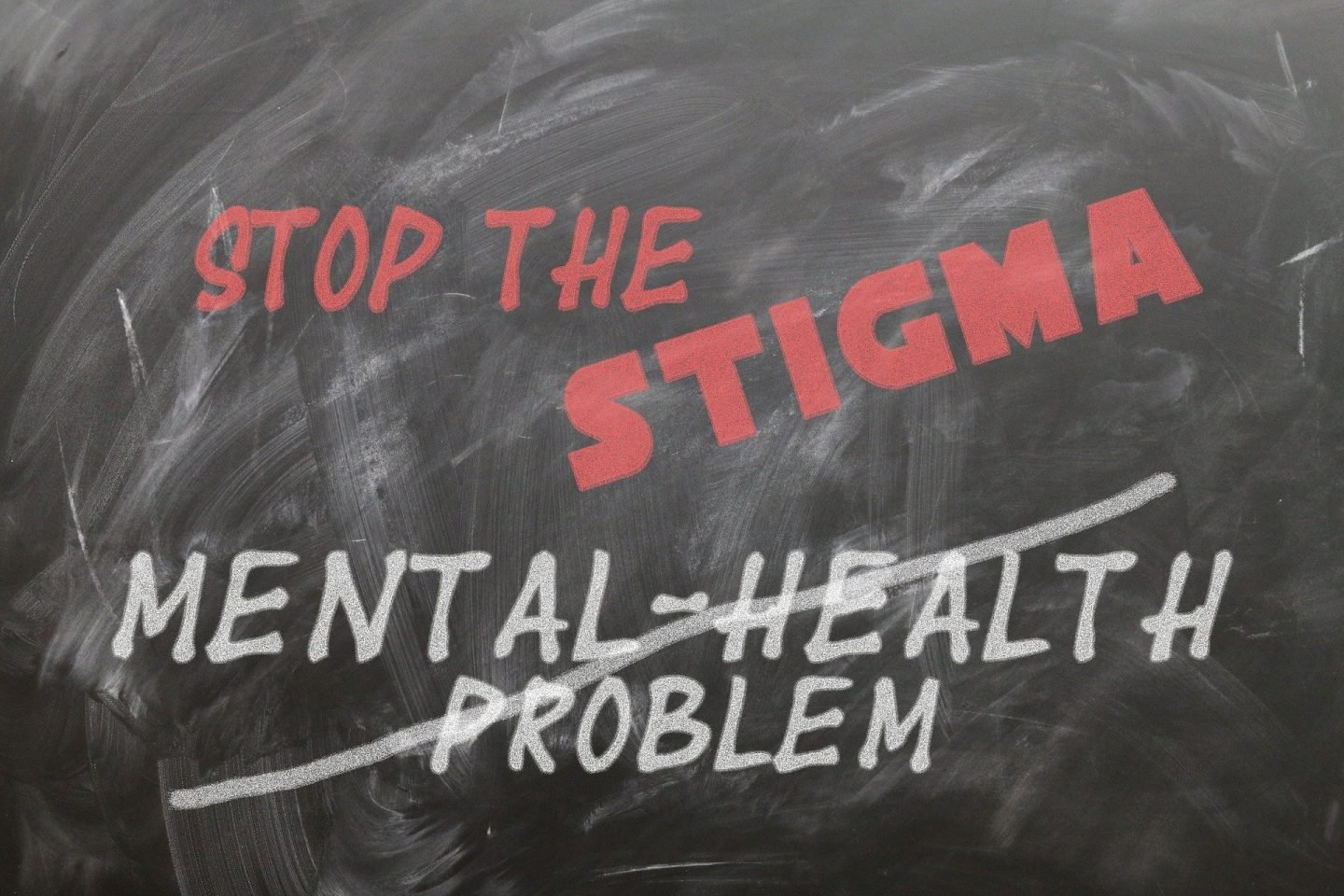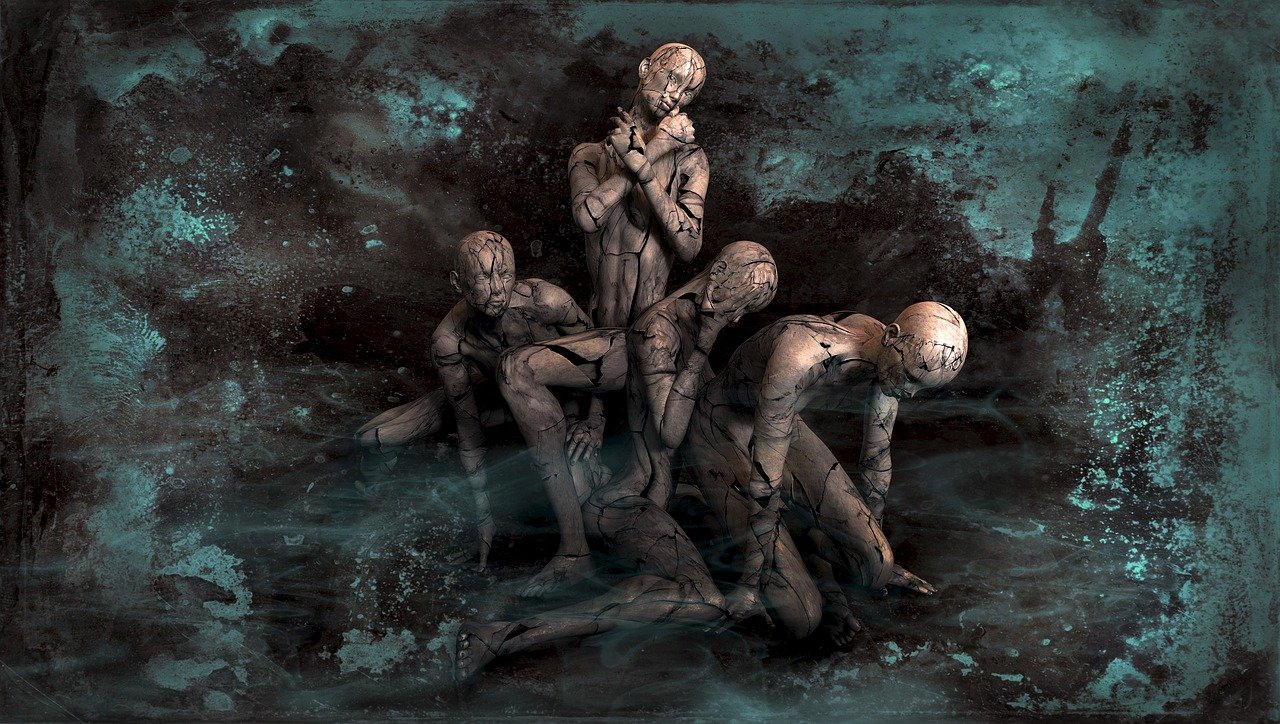
Is The Mental Health Epidemic Catching?
Okay, so I’ve had intense anxiety since childhood which I’m in recovery from now and I’ve had many years of depression, suicidal thoughts and deep dark despair, but something has been bothering me a lot lately. The labelling of mental health issues appears to be making it something most people suffer from, but Is it true?
I’m not saying this to shame vulnerable people who are suffering from incredible mental dis-ease, but to shine a light on what could be perpetuating conditions that could instead be supported, brought into greater balance and to empower those in pain.
There’s a saying, ‘How can we tell someone to change or to get better if we find change hard ourselves?’ And I’m well aware that it’s so easy to feel we can offer people sage wisdom to change. People who’ve never had depression, never had anxiety (not just normal life fear) may find it frustrating to watch those experiencing mental health issues because they’ve not been there, but when does encouraging people to talk about their own mental health become enabling instead of empowering?
Now, I’m not saying stop talking. Yes, share. If you feel suicidal reach out for help. If you feel anxious most of the time or depressed, seek out a friend, a doctor or a therapist (or all of these if you can), but what I am saying is that perhaps it’s not healthy to talk so much, if this means that we don’t make the changes that need to happen for any health issues to heal, to find balance or simply to find a way to manage symptoms.
Are We Building A Club Instead Of An Empowering Mental Health Community?
It’s similar to Alcoholics Anonymous. While I am not knocking this often life -changing organisation, it reminds me that often what we need is community to build us up, but sometimes we build a ‘members only’ club out of a problem and to feel a sense of belonging in life, we keep a hold of that condition to stay in that club. Is it possible we are making a club out of mental health issues now, instead of an empowering community?
If it becomes a club where everyone wears a badge of bipolar, depression, anxiety, PTSD etc., etc, isn’t it becoming an identity that is unchanging, instead of a condition to transform from and come out the other side?
This kind of life choice can stop us growing and evolving as people.
Labelling Can Hold Us Back Sometimes
Labelling something is fine, but if we go to a doctor we want to know what the problem is, to see if we can solve it or cure it or understand it further, but sometimes we can become so attached to the label that we just don’t see how much more we are, beyond that label. That label can hold us back and crush our potential for change and expansion.
A condition isn’t a reason to build a community, but a reason to empower individuals until they are ready to move on from that group.
As to sharing mental health issues, there is nothing wrong with this. I fully understand the stigma that is attached to what people are genuinely experiencing in the world, and yes we need to talk, but to not stop there.
It’s fine to talk about angst, pain, challenging experiences, but if it turns into a 24 hours a day, 7 days a week identity, this is when it has become our reason for being. This is not life.
We may have chronic health conditions, but we are not for example Chronic Fatigue Syndrome. We may have bipolar disorder, but we are not bipolar disorder, we may have chronic anxiety, but we are not chronic anxiety. We are all so much more than the conditions that are arising for us.
Wallowing In The Dark
With my own mental health issues I did what many people do. I cocooned myself into my world, I hid. I refrained from socialising, due to intense social anxiety. When depressed I’d go to bed and sleep in until midday, because I believed more time in bed meant less time to suffer. I didn’t get dressed, I tried to hurt myself. I was on social media a lot. I became a recluse, but I reached out to a good friend who gave me some hard truths.

He said I was wallowing and that hurt. When he told me this I shouted at him, cried and screamed at him, how dare he?! He had no idea what I was going through inside. I thought he just didn’t understand the depth of my pain. He’s in his eighties and told me he had depression most of his life due to intense childhood trauma and challenges as an adult, but he lived differently to me.
He said that he allows himself to feel shitty and sad or angry, but he just gets on with life. He does the laundry, shops for food, but realised the pain would change, it wasn’t something that stayed the same all of the time. It was his resistance to it that perpetuated it. So in a way he lovingly kicked my ass.
The next day I got up earlier and I got dressed and I went for a walk.
This didn’t cure anxiety or depression, but it managed the symptoms until I ready to face what was really going on.
I Didn’t Really Want Change
I said I wanted change, but I didn’t really. I got a whole heap of secondary benefits from holding onto that identity. Being anxious meant I could avoid new experiences that scared me and opportunities for change too. Being depressed meant I wasn’t responsible for my life, it was trauma of my past that made me that way. I chose to believe I was powerless to the condition of anxiety and depression, until I changed my mind on this.
In addition to the secondary benefits, I also realised I was afraid to feel better. I said I wanted to feel better but I received comfort and care from people around me. I didn’t realise there were more nourishing ways to care for myself that didn’t involve other people. I was also scared of success, of my life feeling good. I preferred to stay in the shadows.
Making the changes I needed felt too much like hard work
Getting up earlier, exercising, stepping out of my comfort zone was too hard to me. Yet my voice was saying I wanted to feel better, but my actions or lack of action was saying, ‘No, I am much safer here’. I knew darkness, I knew the shadows, I didn’t know the new.
Life isn’t about the ‘known’ or ‘certain’ in life. It’s about the unknown and the uncertain.
It’s scary not knowing, but it feels a far more alive place now than where I was.
It’s important that we acknowledge our pain, it’s important we get help, it’s important that we don’t feel afraid or ashamed of sharing what’s happening for us, but to do all of this and then make an empowered choice, a step into the new.
We can become a ‘condition’ like depression or anxiety or we can view it as an experience that can change depending on how we perceive it.
I know people dish out advice as to what we should do to find a way through and out of mental health issues, but it’s a personal thing. When depressed, simply getting out of bed is hard, but if we really want change we’ll do it. We’ll open those curtains. We’ll get dressed. We’ll take the leap and ask for help.
My Road To Recovery

What started my road to recovery was a book called ‘The Mindful Way Through Depression: Freeing Yourself From Chronic Unhappiness’. Mindfulness is thrown about in mental health circles like candy nowadays, but it does work, when it’s done properly.
The biggest mindful technique out of this book that helped me was a mindful meditation that involved labelling my thoughts. The simple awareness that the thoughts I thought most of the time were stuck in a loop helped so much. To learn to take a step back and become aware of my inner world showed me I was not my thoughts and I was not my feelings either.
Once I practised this for several months I started exercising, but nothing big. The most exercise I did prior was running for the bus. I was not a fitness fanatic in my life. So I started walking 20 minutes a day at first. This moved any stuck energy in my body and started to lift me into a more motivated place.
The mind can have us believe that 20 minutes is too much when depressed, but if we compare it to how much time we spend on social media, how much time we watch TV and how much time we spend in bed for too long, it’s a really small start.
So it’s possible. Change is possible, but it all really depends if we really want it.
Get Clear On The Benefits To Being Sick
If there are more benefits to being sick we may choose the known over the unknown. We give our power away to the issue, instead of taking it back and knowing we can choose again.
Most people have mental health issues these days; it’s part of this crazy, busy, fast fuelled world that we live in. Society encourages us to compare who we are with other people and we begin the downward spiral where most of us simply don’t feel good enough as we are.
Slowing down (where anxiety is concerned) and speeding up a little when depression hits heavily can support the changes that are needed.
Becoming aware when we are drowning and need help and when we may be over-identifying with an experience is important.
Keep talking mental health, but let’s start empowering through words – not enabling, which is just coping.
We are not victims or powerless.
We can change, but only if we choose to.
Signed a recovering darkness addict.
Support me by buying me a coffee!
THANK YOU

Hey there Kelly. Here here
People need the tools to support their awareness, understanding and so that they can help themselves. The people who often are asking the people who are feeling suicidal to talk, are often the ones who have had the biggest impact on them emotionally and mentally. If each individual takes responsibility for working with their own internal healing then we wont impact each other in the way we do and people will be able to work through what is happening for them and will know that they can heal what they are experiencing because they will have evidence of that, so they become more emotionally resilient. Thank you for the blog and go you.